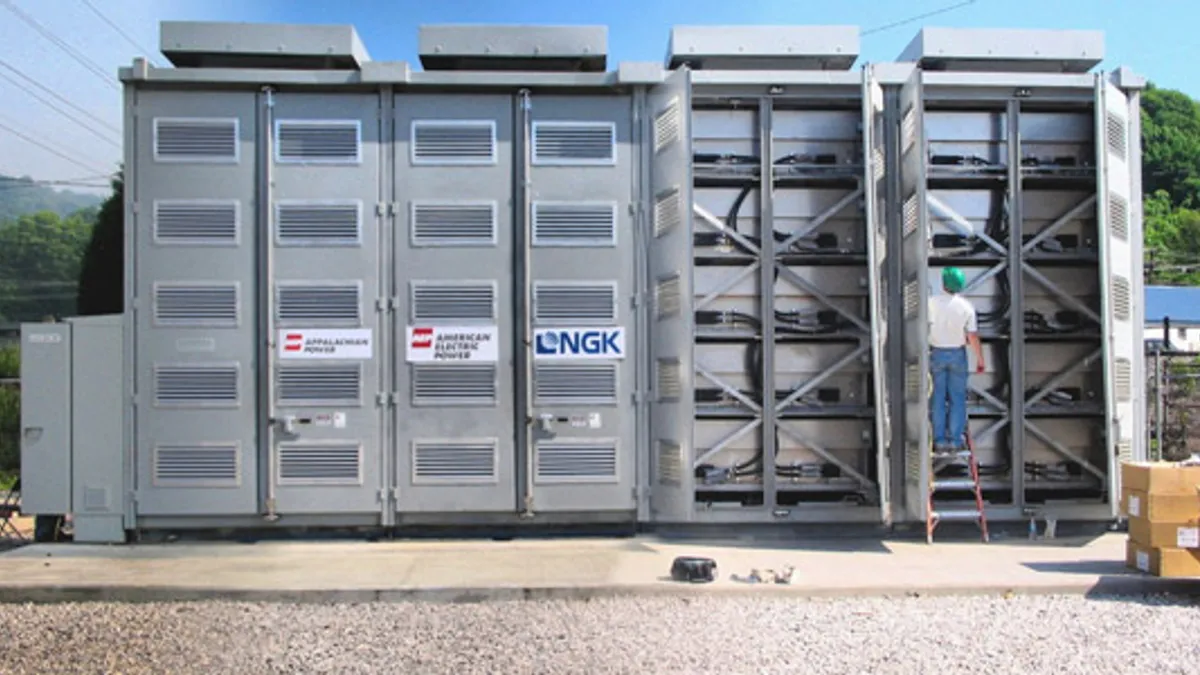Dive Brief:
- Swiss energy storage start-up Alevo Group, in partnership with Customized Energy Solutions (CES), will deploy 200 MW of its 2 MW containerized GridBanks systems for an unnamed U.S. wholesale energy market.
- The lithium-ion battery distributed storage, which will be installed in the second half of 2015, will provide high-priced frequency regulation services to facilitate renewables integration for one of the eight U.S. grid operators served by CES, according to Alevo.
- The installations will further Alevo’s goal of becoming a vertically integrated storage provider. It is planning a gigawatt-scale battery factory in North Carolina where it will manufacture the Gridbanks systems using a Swiss-made inorganic electrolyte.
Dive Insight:
Inquiries in the energy storage community to identify the grid operator in the Alevo-CES deal only revealed that the information is being closely held. Alevo had said this would be the biggest U.S. energy storage deployment, but Southern California Edison completed contracts for 261 MW of energy storage late in 2014. The U.S. also has much larger pumped hydro storage sites.
That kind of hyperbole and secrecy calls into question Alevo’s claim that the company has raised over $1 billion in funding from unnamed private investors and equity funds. On the other hand, CES is a highly respected service provider that includes the PJM Interconnection among its associates.
Frequency regulation is a crucial grid service because the system’s multiple generation assets must be kept synchronized. To prevent an outage, frequency regulation must be done quickly.
Frequency regulation is the most costly of all ancillary services, typically priced at between $10 per MWh and $60 per MWh. The most common form of frequency regulation is boosting generation but that can take minutes. Battery storage could conceivably react within milliseconds.













